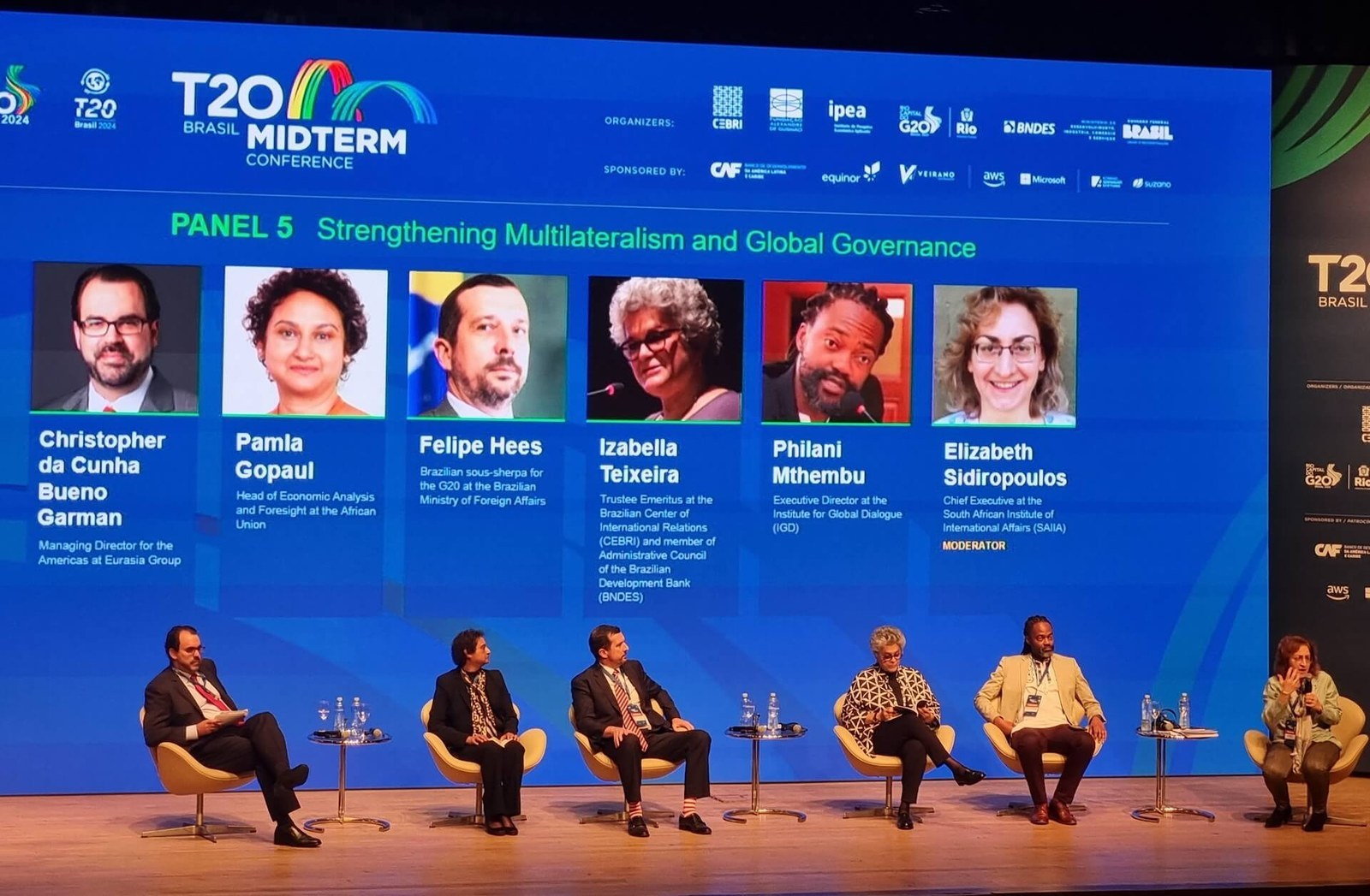
By Everton Victor and Julia Lima. Content originally published by Agência de Notícias Científicas da UERJ (Agenc)
Published in 08/11/2024
Civil society has made proposals to the leaders of the world's 20 largest economies, the G20, that include measures to promote fair energy, financial and digital transitions, and actions to prevent and mitigate the effects of climate change. The T20, a group of think tanks (institutions that conduct research and discussions on public policies and socio-economic issues), met in Rio de Janeiro in July to present the results of the working meetings, which are available in the Communiqué, a 68-page document containing suggestions to be discussed at the bloc's Leaders' Summit and included into the final declaration.
The document contains ten main recommendations and stresses that all proposals should be based on the exchange of experiences and projects already implemented by nations—and always with special attention to the poorest countries. Among the suggestions are support for the creation of a Global Alliance against Hunger and Poverty, alongside multilateral cooperation with funding and a fiscal policy that promotes climate justice. In addition, the declaration is the first of the T20 to include the subtopic of Ethnic-Racial Equality in its recommendations.
Presentation of the Communiqués
T20 is a subgroup of G20 Social think tanks that brings together civil society institutions. Brasil, the current president of the G20, was a pioneer in establishing this sphere of debate. The G20 Social consists of 13 thematic engagement groups—C20 for civil society, Y20 for youth, L20 for trade unions etc. Each of them, including the T20, has released or will issue a Communiqué outlining their proposals.
Overall, the T20 harbors over 120 people divided into six task forces, each of which presented over 300 policy briefs this year. Although Brasil will lead this year's discussions, companies from all over the world have been invited to help prepare the work. Female representation is also highlighted in this edition: T20 Brasil's three leaders are women, with co-leaders accounting for 60%.
The T20 Communiqué is structured as follows: each task force issues instructions and a statement. A higher group is in charge of analyzing and developing the document's ten main recommendations, which bring together demands from multiple or all of the working groups. The work of each group is also presented with specific, individualized instructions.
The T20 Organizing Committee is made up of two governmental institutions and one non-governmental institution. The Institute for Applied Economic Research [Instituto de Pesquisa Econômica Aplicada/Ipea], the Alexandre de Gusmão Foundation [Fundação Alexandre de Gusmão/Funag] and the Brazilian Center for International Relations [Centro Brasileiro de Relações Internacionais/Cebri] make up the committee.
One of the innovations made by the committee in this edition was to submit the proposals before the final G20 Summit. According to Fábio Veras Soares, head of International Studies at Ipea, this initiative is strategic because, during the five months that Brasil still has as president of the bloc, the focus should be on the debate about adopting the recommendations that have been put up.
In practice, although the T20 cannot put the guidelines into practice, it can put pressure on and influence the debates in the Leaders' Declaration, transforming the Communiqué into public policies around the world. The meeting with the leaders of the world's main economies will take place on November 18 and 19 in Rio de Janeiro.
The formulation of each proposal in the Communiqué is always aligned with the priorities defined by the Brazilian presidency of the G20, with studies and data to support the suggestions. Fábio Soares adds that the diversity of think tanks discussing problems and solutions goes beyond helping emerging countries, but also thinking about inequalities in the Global North. "Developed countries have to look at their public policies and try to improve them, which can be learned from the Global South," says Fábio Soares.
A few days before the meeting of the bloc's world leaders, all the G20 Social groups will meet to discuss the work and suggestions developed throughout the year. The G20 Social Summit will take place in Rio from November 14 to 16.
Read the article HERE.